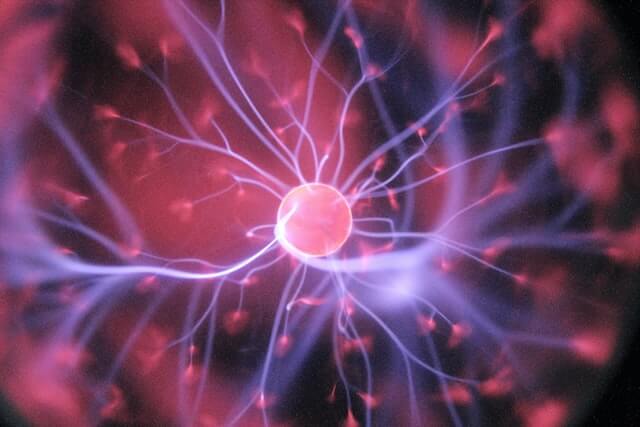Consuming alcohol powerfully affects dopamine activity in the brain. The brain’s “reward” circuits become flooded with dopamine after drinking alcohol. When someone says, they are “buzzed,” it’s because of the euphoric feelings produced by dopamine. When this occurs, dopamine activates other parts of the brain so that it will remember this “great” experience. This is what leaves you wanting to repeat it. However, when this continues to occur over time, the alcohol begins to cause dopamine levels to drop. This creates a miserable feeling and sparks the desire to seek more alcohol to feel better. Understanding how alcohol affects dopamine requires knowing more about what it is and its effect on the brain.
What is Dopamine?
Dopamine is a neurotransmitter. This means it is a chemical messenger responsible for carrying signals between brain cells. It helps to communicate information throughout the body. The brain uses literally billions of neurotransmitters for managing processes like breathing, digestion, and heartbeat. Simple activities like hugging, exercising, and eating stimulates the production of dopamine in the brain. Dopamine is involved in motivation, movement, and reinforcement. This chemical plays many essential roles in the body. It affects memory, mood, and the sensations of pain and pleasure. It is what drives a person to seek food, sex, exercise, and other activities needed for survival and well-being. When someone has low dopamine levels, it causes the loss of motor control. Lower levels of dopamine are related to developing compulsions, cravings, and addictions. On the other hand, elevated levels of the chemical can lead to hyperactivity and anxiety. There are some diseases that affect the delicate balance of dopamine in the brain. Parkinson’s and other metabolic disorders can deplete dopamine. So can the use of drugs or alcohol.
Does Alcohol Affect Dopamine Levels?
When you consume alcohol, it affects the body quickly. Alcohol is absorbed through the stomach’s lining and into the bloodstream. From there, it is able to spread throughout the tissues of the body. It only takes about five minutes for alcohol to reach the brain. Within 10 minutes, most people can begin to feel its effects. The liver starts processing alcohol after about 20 minutes. The entire body absorbs alcohol. But its toll is really taken on the brain since it begins to interfere with its communication pathways.
How does alcohol affect dopamine levels? Initially, drinking alcohol boosts the body’s dopamine levels. Over time, the brain adapts to the excess dopamine, and it starts to produce less of it. It also reduces how many dopamine receptors are active in the body while increasing dopamine transporters, which carry dopamine to the spaces between brain cells. When dopamine levels drop, your mood drops with them. People with an alcohol addiction may start to consume more alcohol unconsciously, trying to boost their dopamine levels so they don’t feel so down. Columbia University researchers discovered that men release more dopamine when they consume alcohol than women. They also found that the extra dopamine produced as a result of consuming alcohol is concentrated in the reward center of the brain.
How Alcohol Affects the Dopamine System
Does alcohol decrease dopamine? Over time, the more a person drinks, the dopamine effect gradually diminishes. Eventually, it’s almost nonexistent. By this stage, the drinker is hooked or addicted to the dopamine release in the brain’s reward center. But they are no longer getting it. This develops their constant need to keep going back to consume more alcohol to get more dopamine released. Alcohol decreases dopamine but specifically decreases its ability to send signals to the reward center of the brain.
Rebalancing Dopamine After Alcohol Detox
The time alcohol detox takes can vary between individuals. Recovery takes time, support, discipline, and patience. Alcohol must be removed before the brain can start the healing process. Detox can take days to weeks, depending on the individual and how long they struggled with addiction. The brain will begin to recover one week after the last drink of alcohol. The time it takes to rebuild neural pathways and rebalance dopamine levels depends on numerous variables. How long a person was addicted to alcohol, their age, mental health, and genetics affect how quickly dopamine levels return to normal.
The good news is that the brain has robust neuroplasticity, so it is capable of rewiring neural pathways. Amino acids play a huge role in the production of neurotransmitters, including dopamine, serotonin, and norepinephrine. Tyrosine and phenylalanine are two amino acids that the body uses to produce dopamine. Ingesting amino acids influences brain function, and increasing your intake of these, and other amino acids can help boost dopamine levels. They encourage the brain to return to its normal level of functioning.
Alcohol consumption affects neurotransmitters, including dopamine. Addiction is often the result of seeking that “feel good” high one gets from an increase in dopamine. However, over time, alcohol interrupts the transport of dopamine. Amino acids can help people who are in recovery as they help balance out brain function and its production of dopamine. Think of them as the building blocks needed for rebuilding neurotransmitters like dopamine.
Are you looking for a natural way of rebalancing neurotransmitters? BioRebalance Restore is formulated to help reduce cravings for alcohol, enhance your mood, and provide the amino acids needed to rebalance dopamine levels.
Dr. Rebeca Eriksen, PhD MSc BSc (Hons) RD, is the Co-Founder at BioRebalance. She has a PhD in Nutritional Genetics from Imperial College London, and over ten years of clinical experience designing custom nutritional repair regimens for patients recovering from alcohol addiction and other disorders.
- Dr. Rebeca Eriksenhttps://biorebalance.co.uk/author/dr-rebeca-eriksen/
- Dr. Rebeca Eriksenhttps://biorebalance.co.uk/author/dr-rebeca-eriksen/
- Dr. Rebeca Eriksenhttps://biorebalance.co.uk/author/dr-rebeca-eriksen/

